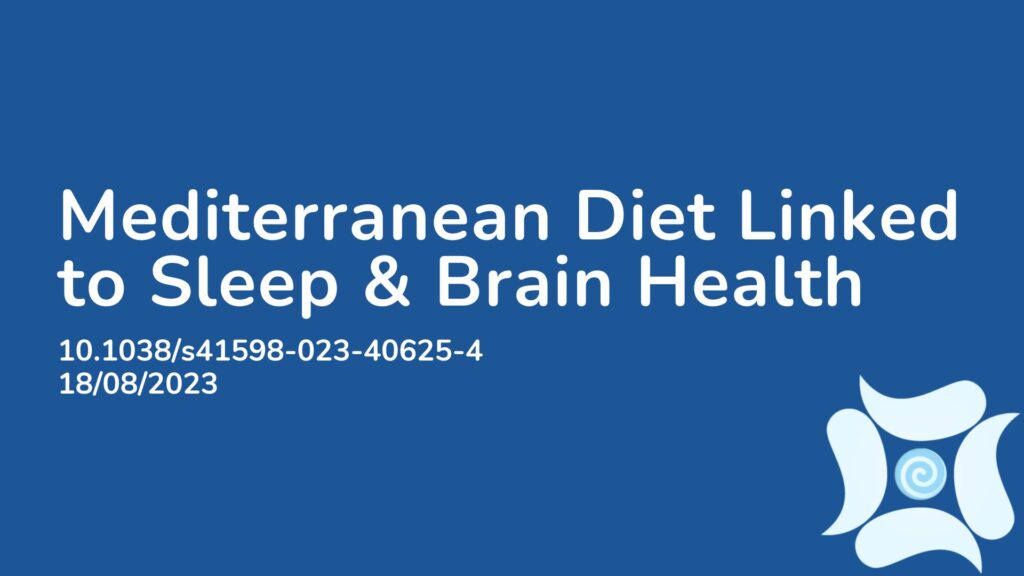Summary:
Poor sleep quality is a common health concern that can significantly impact overall well-being. Compelling evidence suggests that insufficient sleep can increase risk of chronic conditions such as type 2 diabetes, metabolic syndrome, cardiovascular disease, and obesity. Numerous lifestyle modifications such as diet and physical activity play a role in influencing the quality and quantity of sleep. Certain foods, particularly those rich in tryptophan and melatonin, are recognized for their potential to enhance overall sleep quality. Moreover, there is a growing interest in the Mediterranean diet (MD) for its potential to promote sleep health. The MD emphasizes nutrient-dense fruits and vegetables, as well as foods high in plant-based protein and unsaturated fats. Brain-derived neurotrophic factor (BDNF) is a molecule that supports the survival and growth of brain neurons. Although no specific BDNF level is universally considered optimal, numerous studies have explored the relationship between BDNF and sleep quality. Dietary factors, including fatty acids, vitamin E, and polyphenols, have been studied in relation to BDNF levels, with some trials indicating that the MD, when supplemented with nuts or olive oil, can impact BDNF levels. This study aimed to examine the connection between the MD, BDNF levels and sleep quality in Iranian adults. The results showed that among overweight individuals, a stronger commitment to the MD was linked to a reduced likelihood of experiencing short sleep. Participants exhibiting greater adherence to MD were less likely to have low BDNF levels. In summary, Iranian adults with higher adherence to the MD had a lower chance of short sleep and poor sleep quality.
Abstract:
Data on the association between Mediterranean diet, sleep and brain-derived neurotrophic factor (BDNF) were limited in Middle Eastern populations. We examined the association between Mediterranean dietary pattern with sleep quality/quantity, and serum BDNF in Iranian adults. This cross-sectional study was performed among 535 middle-aged adults (54% men), selected by multistage cluster random sampling method. The Pittsburgh sleep quality index and a validated food frequency questionnaire were used to assess sleep quality, sleep quantity, and Mediterranean diet score (MDS). Twelve-hour fasting blood samples were taken to evaluate serum BDNF values. Participants in the highest tertile of MDS, in comparison to those in the lowest tertile, had lower odds of having short sleep (OR = 0.44, 95%CI: 0.21–0.91) and poor sleep quality (OR = 0.48, 95%CI: 0.22–0.96), after adjustment for potential confounders. Among specific domains of sleep quality, lower odds of subjective sleep quality, sleep latency, and daytime dysfunction were associated with increased MDS. Higher adherence to MDS among individuals with overweight or obesity reduced the odds of having short sleep; this relation was not seen among individuals with normal weight. In contrast, the association between sleep quality and the MDS was significant in individuals with normal weight, but not those with overweight or obesity. Participants with higher adherence to MDS had lower odds for low BDNF values; however, this relation was not statistically significant. Overall, Iranian adults with a higher adherence to MDS had considerably lower odds of having short sleep and poor sleep quality. BDNF would not be an intermediate molecule for this connection.
Article Publication Date: 18/08/2023
DOI: 10.1038/s41598-023-40625-4



